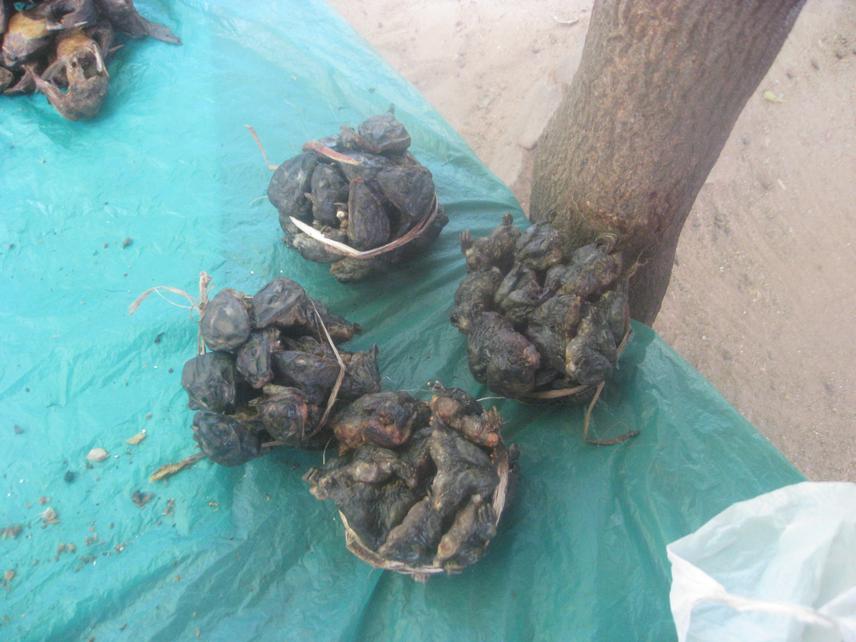Henry Abuaku Howard
This project aims to identify and record amphibian species and their quantities harvested and educate local stakeholders and contribute in the making of management recommendations.

Over-exploitation of frogs is a key factor culminating in their worldwide decline (Warkentin 2008). In Ghana, there is increasing demand for frogs for both local consumption and export, especially to neighbouring Burkina Faso. To date, data and relevant education programmes are non-existent. We will conduct interviews and market surveys to identify and record species and the quantities harvested for consumption and trade. In addition, actors involved including frog harvesters, middlemen, traders and consumers as well as the markets and trade-routes will be identified. We will also influence local people’s negative perceptions about frogs, by creating awareness through workshops, video shows and radio broadcast programmes. We will also reach out to local schools to educate school teachers and children. Overall, the educational programme will include outlining the benefits to ecosystem health of maintaining frog populations, and the consequences when frogs are overexploited. Through workshops and focus group discussions, we will also involve all stakeholders to make management recommendations for monitoring in developing strategies to reduce frog consumption.
The project is expected to provide important baseline information on the frog meat trade in Ghana. This will be only the second such study in the whole of West Africa (the first is Monheke et al. 2010, which does not include information on Ghana). In the light of the ongoing global amphibian declines these project activities will allow for more effective conservation of the remaining species populations. Specifically, the information will enable SAVE THE FROGS! Ghana, Ghana Wildlife Division and SAVE THE FROGS! USA to advance both local and international efforts in reducing exploitations (for instance, ban harvest and restrict harvests of certain species to particular places or seasons). The data may also be a reference for Ghana to contribute to ongoing proposals seeking regional cooperation within West Africa to develop a frog-meat trade monitoring system, to ensure that amphibians are harvested sustainably.